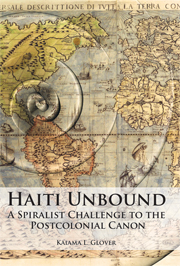Part IV - Showing vs. Telling
Summary
It is a question of arriving at an open totality of expression that would be nourished by both the oral and the written, but that wouldn't merely be the addition of the oral and the written, whether one is coming from the perspective of the oral or one promotes the cause of the written … And more than ever, the Creole writer, seated before his sheet of paper, notices to what extent, on that opaque path situated between the oral and the written, he must abandon a good part of his reason, not in order to become irrational but in order to become clairvoyant, inventor of languages, herald of another world. What I mean is, he must become Poet.
—Patrick ChamoiseauThe postcolonial Caribbean writer lives, broadly speaking, a veritable drama of self-expression. His or her relationship to the wor(l)d is determined by a host of complex and significant tensions and contradictions—between the oral and the written, between the intellectual elite and the popular majority, between discourse and the cry, etc. Some of these tensions are, of course, part of the challenges to writing that individuals of any cultural background might face, particularly those writers who have similarly experienced colonialization and/or imperialist occupation. Indeed, often implicit in the process of writing is a refusal—or at least an interrogation—of preexisting monolithic and proscriptive discourses. Nevertheless, the theoretical preoccupation of the Caribbean writer with identifying and rejecting—or at least reinterpreting—the structural and stylistic exigencies of European literature suggests that the stakes are particularly high.
- Type
- Chapter
- Information
- Haiti UnboundA Spiralist Challenge to the Postcolonial Canon, pp. 179 - 182Publisher: Liverpool University PressPrint publication year: 2010

